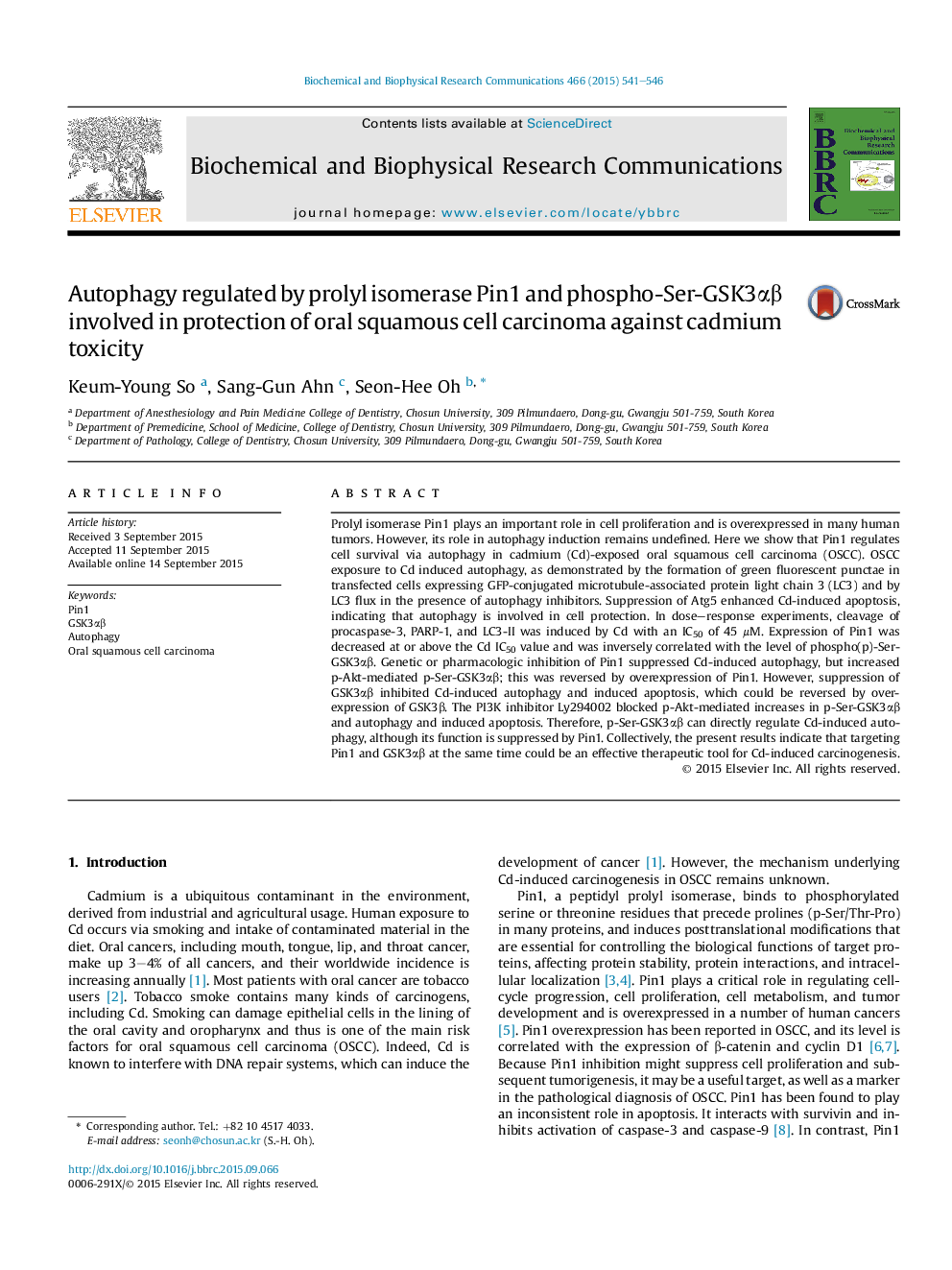| Article ID | Journal | Published Year | Pages | File Type |
|---|---|---|---|---|
| 10750938 | Biochemical and Biophysical Research Communications | 2015 | 6 Pages |
Abstract
Prolyl isomerase Pin1 plays an important role in cell proliferation and is overexpressed in many human tumors. However, its role in autophagy induction remains undefined. Here we show that Pin1 regulates cell survival via autophagy in cadmium (Cd)-exposed oral squamous cell carcinoma (OSCC). OSCC exposure to Cd induced autophagy, as demonstrated by the formation of green fluorescent punctae in transfected cells expressing GFP-conjugated microtubule-associated protein light chain 3 (LC3) and by LC3 flux in the presence of autophagy inhibitors. Suppression of Atg5 enhanced Cd-induced apoptosis, indicating that autophagy is involved in cell protection. In dose-response experiments, cleavage of procaspase-3, PARP-1, and LC3-II was induced by Cd with an IC50 of 45 μM. Expression of Pin1 was decreased at or above the Cd IC50 value and was inversely correlated with the level of phospho(p)-Ser-GSK3αβ. Genetic or pharmacologic inhibition of Pin1 suppressed Cd-induced autophagy, but increased p-Akt-mediated p-Ser-GSK3αβ; this was reversed by overexpression of Pin1. However, suppression of GSK3αβ inhibited Cd-induced autophagy and induced apoptosis, which could be reversed by overexpression of GSK3β. The PI3K inhibitor Ly294002 blocked p-Akt-mediated increases in p-Ser-GSK3αβ and autophagy and induced apoptosis. Therefore, p-Ser-GSK3αβ can directly regulate Cd-induced autophagy, although its function is suppressed by Pin1. Collectively, the present results indicate that targeting Pin1 and GSK3αβ at the same time could be an effective therapeutic tool for Cd-induced carcinogenesis.
Related Topics
Life Sciences
Biochemistry, Genetics and Molecular Biology
Biochemistry
Authors
Keum-Young So, Sang-Gun Ahn, Seon-Hee Oh,
